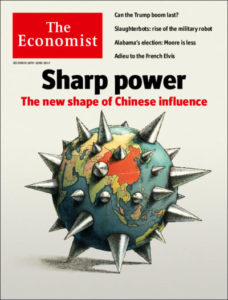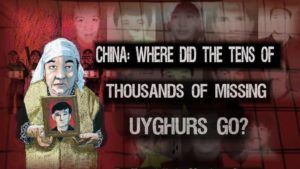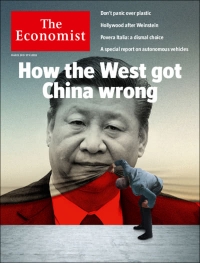 Beijing’s new national security White Paper flags the fact that America and China are now competing superpowers, and that China’s growing military forces are developing to the point where they will be able to challenge the United States, notes CSIS analyst Anthony Cordesman.
Beijing’s new national security White Paper flags the fact that America and China are now competing superpowers, and that China’s growing military forces are developing to the point where they will be able to challenge the United States, notes CSIS analyst Anthony Cordesman.
The paper – China’s National Defense in the New Era – “does not even hint at the level of ideological competition that drove the Cold War between the Soviet Union and the West,” but it describes Taiwan, Tibetan, and Turkistan separatists as threats, he adds. From this perspective, the document is “a clear warning of growing strategic rivalry between an existing and emerging super power.”
Has the United States fallen behind in the competition of ideas?
While watching China’s rise, champions of the U.S. democratic model and liberalism more generally found comfort in three arguments, notes Stanford University’s Michael McFaul:
 First, Chinese Communist leaders produced an average annual growth of nearly 10 percent for four decades by embracing economic liberalization rather than deepening central planning — in other words, they chose to become more like us economically.
First, Chinese Communist leaders produced an average annual growth of nearly 10 percent for four decades by embracing economic liberalization rather than deepening central planning — in other words, they chose to become more like us economically.- Second, some U.S. proponents of the benefits of democracy believed that Chinese economic modernization would eventually produce political modernization; China was on the road, however slow and winding, to becoming even more like us.
- Third, during China’s opening to the West over the past four decades, many Chinese — entrepreneurs, students, professors and even some officials — seemed genuinely to admire the United States. Small wonder that many assumed that we would win the Chinese over as more of them became acquainted with the U.S. model.
All three of these arguments seem much weaker today than just a few years ago, he writes for The Washington Post:
-

Change.org
First, Chinese Communist leader Xi Jinping has slowed the pace of market reforms and pivoted back toward greater support for state-owned enterprises, more state intervention in the economy, more restrictions on foreign investment, and greater party influence in private companies. Economic growth has slowed, but not by much. The Chinese economic system no longer seems to be converging with U.S.-style capitalism. Indeed, it looks increasingly more like a different model altogether…
- Second, the hope that economic liberalization would generate demand for democratic change has not yet occurred; some now believe it never will. Chinese Communist Party officials champion the advantages of their system — an ability to undertake massive infrastructure projects, the capacity to manage income inequalities and a commitment to harmony in government and society. ….
- Third, and perhaps most alarming, my impression (and it’s just that, an impression) from encounters with dozens, if not hundreds, of Chinese students and scholars during my stay in China is that we are losing those who once admired us. Intellectuals no longer seek inspiration from U.S. democracy…
 “To regain the upper hand in the ideological struggle with China, we must renew our democracy at home and reengage in leading the liberal order abroad,” adds McFaul, a former NED Reagan-Fascell fellow.
“To regain the upper hand in the ideological struggle with China, we must renew our democracy at home and reengage in leading the liberal order abroad,” adds McFaul, a former NED Reagan-Fascell fellow.
How should the United States and its allies work together to respond to China’s ongoing rise? What are the advantages and limits of the current US approach? Ultimately, can the United States and China be both strategic competitors and, at least in some areas, strategic cooperators at the same time? The Scowcroft Center for Strategy and Security’s Asia Security Initiative will convene a public panel discussion on Strategic Competition with China from 4:30 pm to 6:00 pm on Thursday, July 25, 2019 at the Atlantic Council (1030 15th Street NW, Washington, DC 20005), featuring:
- Mr. Jim Sciutto, Anchor and Chief National Security Correspondent, CNN
- Dr. Michael Pillsbury, Senior Fellow and Director for Chinese Strategy, Hudson Institute
- Amb. Paula J. Dobriansky, Former US Under Secretary of State; Senior Fellow, The Future of Diplomacy Project, JFK Belfer Center for Science and International Affairs, Harvard University; Board Director and Vice Chair, Scowcroft Center for Strategy and Security, Atlantic Council.







